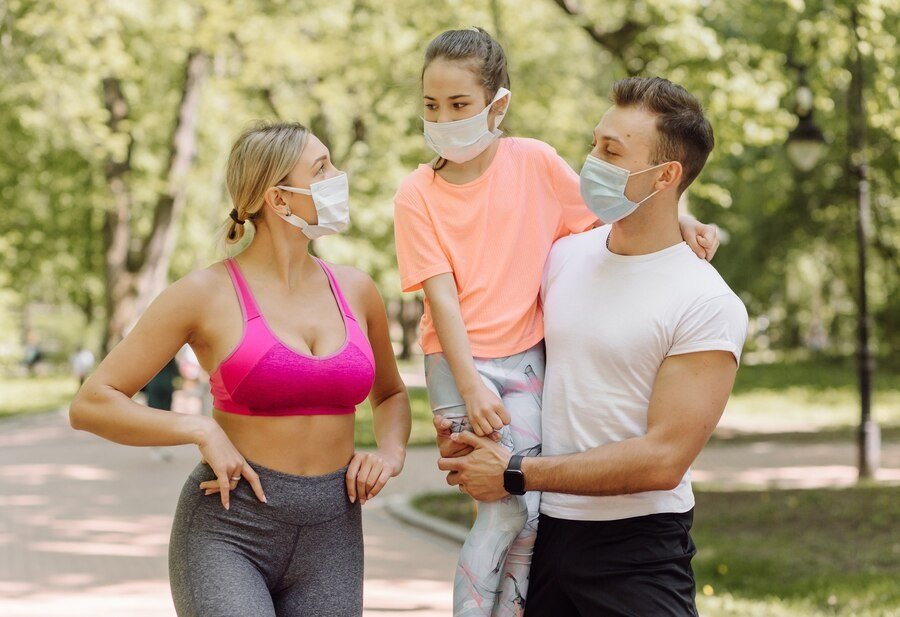In today’s society, maintaining a healthy body image can be challenging, particularly with the pervasive influence of social media and unrealistic beauty standards. For adults seeking to foster a positive body image, it is essential to shift the focus from aesthetic ideals to overall health and wellness. A healthy lifestyle that includes regular exercise is a cornerstone for achieving and sustaining this positive body image. By prioritizing physical activity, individuals can experience numerous physical, mental, and emotional benefits that collectively contribute to a healthier self-perception and a more fulfilling life. Here is the article about the to maintain a healthy body image, adults should focus on a healthy lifestyle by exercising.
The Importance of a Healthy Body Image
A healthy body image is characterized by a realistic and positive perception of one’s own body. It involves accepting and appreciating one’s physical appearance and capabilities while recognizing that self-worth is not solely determined by external appearance. Cultivating a healthy body image is crucial because it affects mental health, self-esteem, and overall well-being. Negative body image, on the other hand, can lead to a host of issues, including depression, anxiety, eating disorders, and other harmful behaviors.

Exercise: The Foundation of a Healthy Lifestyle
Regular physical activity is a fundamental component of a healthy lifestyle. Exercise offers a multitude of benefits that extend far beyond physical fitness. Engaging in consistent exercise helps to improve cardiovascular health, increase strength and flexibility, boost immune function, and enhance overall vitality. These physical improvements can lead to a more positive body image as individuals witness the tangible benefits of their efforts.
- Physical Benefits of Exercise
Exercise has profound effects on the body, contributing to physical well-being in numerous ways. Regular physical activity helps to maintain a healthy weight, reduce the risk of chronic diseases such as heart disease and diabetes, and improve bone density. It also enhances muscle tone and strength, leading to a more sculpted and fit appearance. These physical changes can significantly impact how individuals perceive their bodies, fostering a sense of pride and accomplishment.
- Mental and Emotional Benefits
Beyond the physical advantages, exercise plays a pivotal role in mental and emotional health. Physical activity triggers the release of endorphins, often referred to as “feel-good” hormones, which can alleviate symptoms of depression and anxiety. Exercise also reduces levels of cortisol, the stress hormone, promoting a sense of calm and relaxation. These psychological benefits contribute to a more positive self-image and an improved sense of overall well-being.
- Boosting Self-Esteem and Confidence
Engaging in regular exercise can lead to a heightened sense of self-esteem and confidence. As individuals achieve their fitness goals, whether it’s running a certain distance, lifting a specific weight, or mastering a new yoga pose, they gain a sense of accomplishment. This sense of achievement can translate into a more positive perception of their bodies and abilities. Moreover, exercise encourages self-discipline and resilience, qualities that further bolster self-confidence.
Integrating Exercise into Daily Life
For adults aiming to maintain a healthy body image, incorporating exercise into their daily routines is essential. Here are some practical strategies to make physical activity a sustainable and enjoyable part of life:
- Find Activities You Enjoy
The key to sticking with an exercise regimen is to find activities that you genuinely enjoy. Whether it’s dancing, swimming, hiking, cycling, or playing a sport, choosing activities that bring you joy will make exercise feel less like a chore and more like a rewarding experience.
- Set Realistic Goals
Setting achievable fitness goals is crucial for maintaining motivation and preventing burnout. Start with small, attainable objectives and gradually increase the intensity and duration of your workouts. Celebrate each milestone, no matter how small, to stay motivated and encouraged.
- Make Exercise a Social Activity
Incorporating social elements into your exercise routine can make it more enjoyable and sustainable. Join a fitness class, find a workout buddy, or participate in group sports to add a social dimension to your physical activity. Social support can enhance motivation and accountability.
- Prioritize Consistency Over Intensity
Consistency is key when it comes to reaping the benefits of exercise. Aim for regular, moderate-intensity workouts rather than sporadic, high-intensity sessions. Consistent exercise not only yields better physical results but also establishes a routine that becomes a natural part of your lifestyle.
- Listen to Your Body
It’s essential to listen to your body and avoid pushing yourself to the point of injury or exhaustion. Rest and recovery are integral components of a healthy exercise routine. Pay attention to your body’s signals and adjust your workouts accordingly to prevent burnout and injuries.
Complementing Exercise with a Balanced Lifestyle
While exercise is a crucial element of a healthy lifestyle, it should be complemented by other healthy habits to maximize its benefits and promote a positive body image.

- Nourish Your Body with a Balanced Diet
A nutritious diet is fundamental to overall health and well-being. Focus on consuming a variety of whole foods, including fruits, vegetables, lean proteins, whole grains, and healthy fats. Avoid extreme diets or restrictive eating patterns, as they can negatively impact both physical and mental health.
- Prioritize Sleep and Rest
Adequate sleep is vital for physical recovery and mental well-being. Aim for 7-9 hours of quality sleep each night to support your body’s natural healing processes and maintain optimal health.
- Practice Mindfulness and Stress Management
Incorporate mindfulness practices, such as meditation, deep breathing exercises, or yoga, into your daily routine to manage stress and promote mental clarity. Stress management is essential for maintaining a positive body image and overall well-being.
- Stay Hydrated
Proper hydration is crucial for physical performance and overall health. Drink plenty of water throughout the day to keep your body hydrated and functioning optimally.
- Seek Professional Guidance
If you’re unsure where to start or need personalized advice, consider seeking guidance from fitness professionals, nutritionists, or mental health experts. They can provide tailored recommendations and support to help you achieve your health and fitness goals.
Conclusion
Maintaining a healthy body image is an ongoing journey that requires a holistic approach to health and wellness. By prioritizing regular exercise and adopting a balanced lifestyle, adults can foster a positive self-image, improve physical and mental well-being, and lead more fulfilling lives. Remember, the goal is not to conform to societal standards but to embrace and celebrate your unique body and capabilities. With commitment, consistency, and self-compassion, you can achieve and maintain a healthy body image that enhances your overall quality of life.











